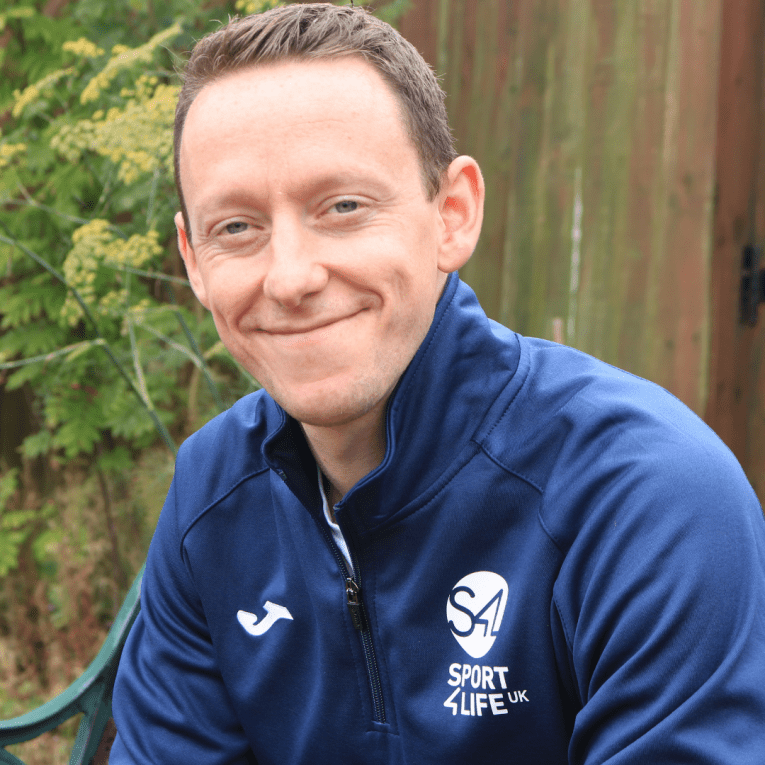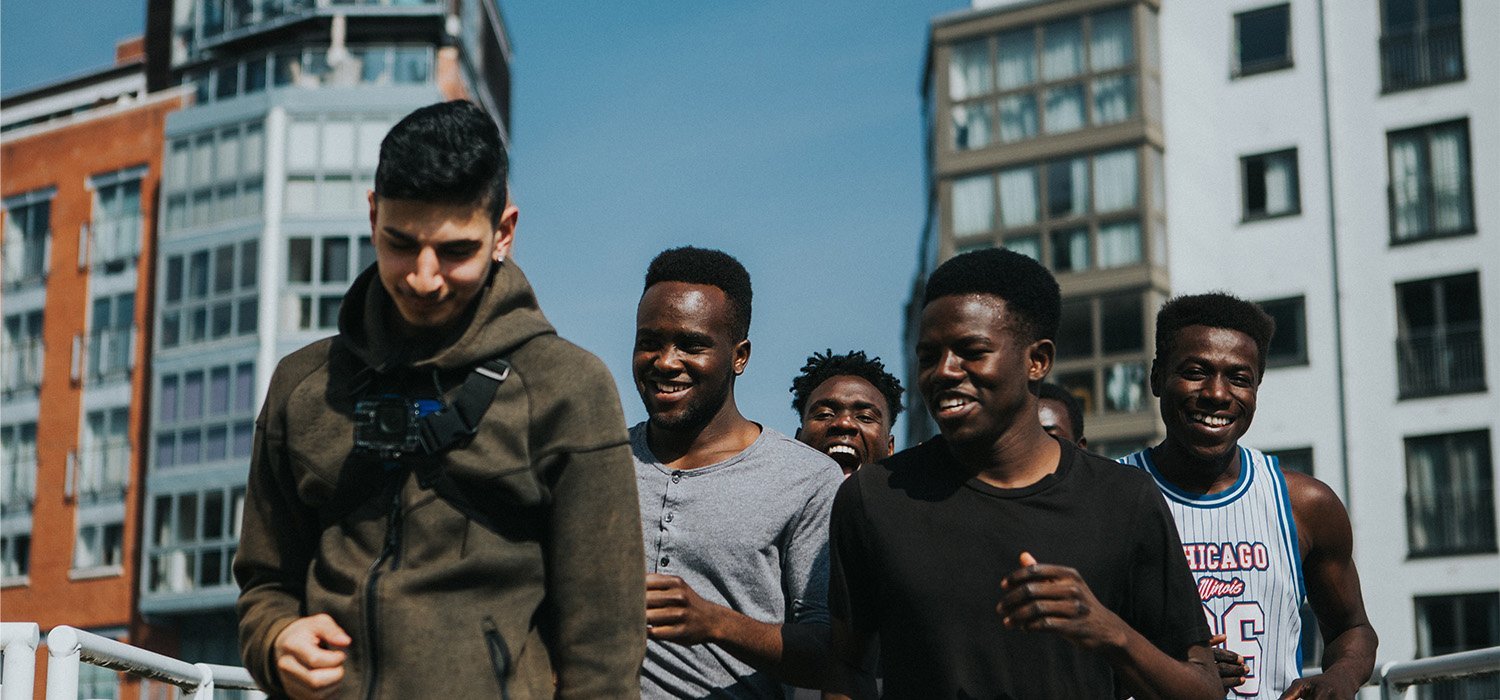Black Lives Matter – a reflection on our progress, learning and ongoing mission
by Tom Clarke-Forrest, Founder & CEO, Sport 4 Life UK
One year on
It is a year since Sport 4 Life UK (S4L) released its Black Lives Matter statement, following the tragic death of George Floyd in the US – the racism and deep inequalities in society that this highlighted, and the waves of global protests that it evoked.
Our statement articulated our desire to do more to normalise equality and included a set of commitments by which we wanted to hold ourselves accountable. As an organisation proudly serving a diverse community, we wanted to stand united with all those taking a stance in creating a new normal – where people of all ages, backgrounds and beliefs can grow up in a better and truly equal society, without fear of unfair treatment, and one which enables them to realise their full potential.
One year on, we’re reflecting on our progress, our learning, and the ongoing need to keep it front and centre.

Looking back
Through our existing approaches to equality and diversity, through our workforce and trustees, through the demographics of our beneficiaries, and through our use of sport as a vehicle to unite, we were making progress through our actions and work, and normalising equality has been a key strategic objective throughout our 2021/21 Strategy.
However, collectively, we didn’t want to be complacent and certainly didn’t want to just pay lip service to such an important movement. We wanted to and needed to, do more, which required us all to play our part. Over the last 12 months, we have:
- Listened and reflected – We’ve stopped talking and started listening – both individually, and as an organisation. As a team, we’ve listened to colleagues, young people, partners, campaigners, educators and those with lived experience. We’ve seeked to understand. This has been empowering, inspiring, humbling, and at times upsetting – but always useful. On a personal level, I’ve come to better understand white privilege – for example the privilege of escaping violent stereotypes, the privilege of media biased towards my race, the privilege of imagery, literature and history that overwhelmingly represents and favours my race, the privilege of being treated favourably by authorities. and many more. I would also like to highlight Barnardo’s notable work in this area – see here. I’ve also come to better understand unconscious bias, lived experience and my own personal responsibility. Listening and reflecting has been a powerful springboard for individual and collective action.
- Educated ourselves – Facilitated by the amazing ‘Legacy Consultants’ and their ‘Equally Yours™’ training game (which I can highly recommend!), we delved further into conversations on the issue of race equality – including debate, discussion, stats and information, upskilling on systemic racism, and development areas for our organisation. These were courageous conversations, but much needed open dialogue. And it’s been refreshing to see a number of colleagues individually educating themselves – through seeking out more conversations, reading a new book, and their own research.
- Empowered others – As an organisation that proudly supports c.80% ethnically diverse communities, we know (and see and hear) the challenges our young people face: they are statistically more likely to be unemployed, less likely to progress professionally and more likely to receive longer custodial sentences. So as part of this movement and our commitments, we continued to listen to our young people, and have supported them to enact change – providing them with a voice and a safe platform to express their views. We’ve facilitated positive discussions, and educated and supported them where possible. In support of this, we’ve been proud to link in with UK Youth’s #YoungAndBlack campaign.
- Reviewed – A key part of this last year has been reviewing our structures, systems, processes and policies to ensure they are truly inclusive and equitable, and reflect our new commitments. This has resulted in a number of changes. We’ve created a new ‘Equality, Diversity and Inclusion (EDI) Committee’ (that I’m proud to be part of), which has responsibility for ensuring the development and delivery of our EDI agenda, and promotes inclusion, equality and the understanding of diversity, both as an employer and as a service provider – as well as ensuring we act in accordance with our statutory duties to eliminate unlawful discrimination, and advance equality of opportunity. A key success here has been the introduction of an ‘Inclusive Procurement’ element of our wider procurement processes, to ensure that all potential suppliers, contractors and/or partners have a fair and equal opportunity to compete for business, as well as ensuring strong due diligence on their EDI processes (amongst other areas like localism and sustainable development) to ensure shares values. And we’ve also reviewed (and changed) areas of our terminology, linking in with the expert research from Sporting Equals (and their ‘Terminology Survey Statement’).
- Collaborated and Shared – I’ve been proud to sign Acevo’s racial diversity commitment, signing up to eight principles to address the diversity deficit in charity leaders – a campaign to create stronger, more resilient charities (as part of the Racial Diversity in the Charity Sector report). We’ve also fed into the call for evidence from the Commission on Race and Ethnic Disparities.
Whilst we’re proud of our progress this last year, there is still so much more to learn, and to do. Indeed, the recent controversy surrounding football teams taking the knee have highlighted the challenges we continue to face in tackling racism for good.
Looking forward
The battle for racial equality continues.
Over the next 12 months, as we enter our 2021/22 company year, we will continue to normalise equality and have this as a key strategic objective. We will come together as a team to further discuss key issues in an open and safe space – looking broadly at all equality, diversity and inclusion issues through our new committee.
We will continue to empower our young people to enact change, to learn and to create a better world for future generations. We will also ensure our governance encourages us to work with a more diverse set of stakeholders (including partners, funders, suppliers and contractors – not just employees). And we will challenge all forms of inequality whenever and where we see it – whether internally or externally. And we will hold ourselves to account to ensure we continue to make progress, and encourage our friends and partners – including authorities in Birmingham and across the West Midlands, to do the same.
The young generation we exist to support will still be the ones who decide where we go from here and will shape our future. We continue to stand together in our ongoing pursuit to be better.

